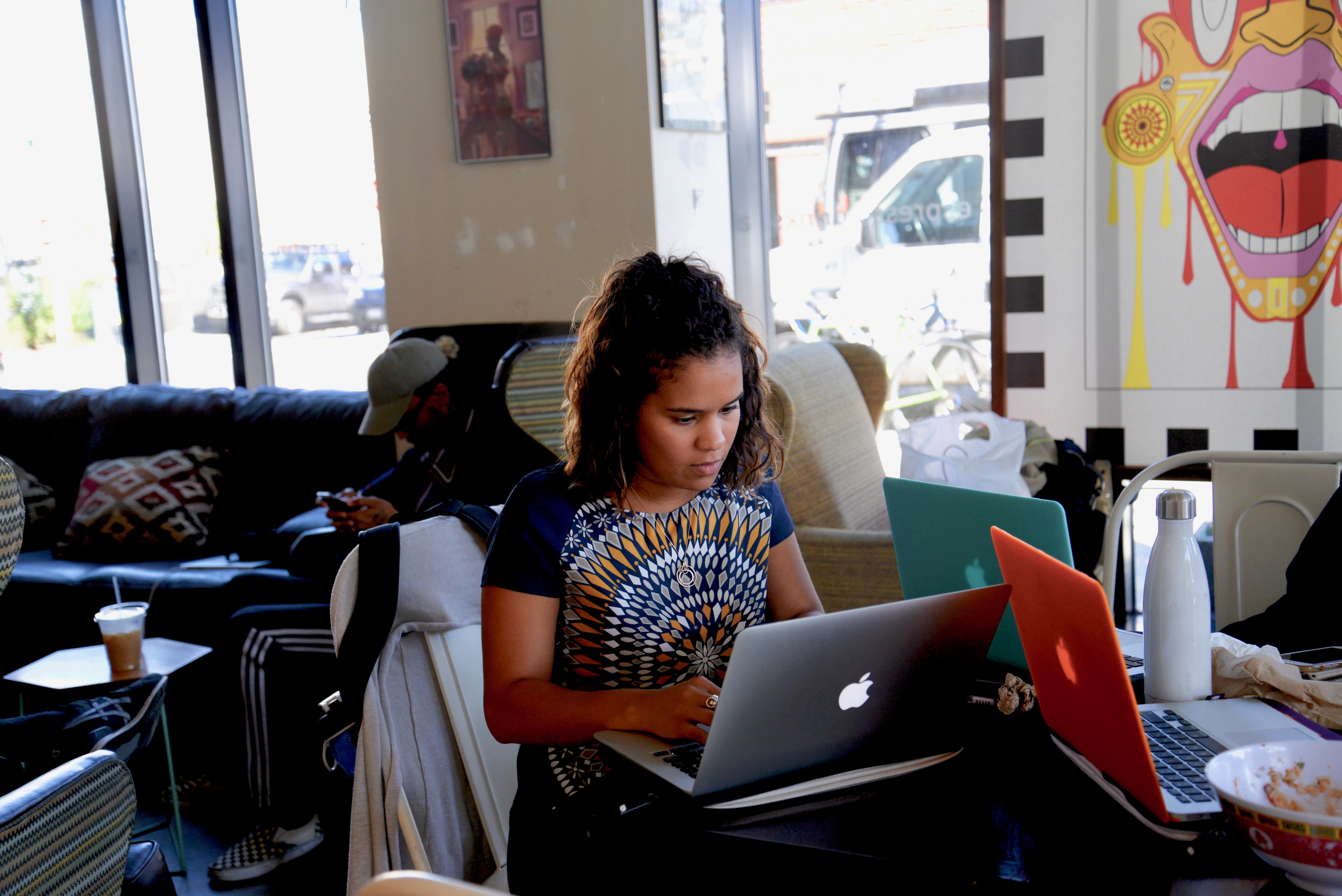On the 13th floor of a high-rise in Downtown Boston, amidst the hustle and bustle below is a man named Corey Thomas. He is the CEO of Rapid7, a cyber security company that specializes in data-analysis.
Under him work 1,000 employees and his annual compensation numbers extends seven figures. He is also a black man, one of the few to hold an executive office in a business in the U.S., much less a technology firm.
Thomas, the son of a self-taught electrician and a school district secretary, greets people with a warm smile and candid demeanor. These qualities appear to have spread through his company’s headquarters, which are decked out with orange accents and all the touches we associate with high-tech companies: comfortable communal seating areas; an impressive snack array; and architectural elements that are both modern and edgy.
He seeks to create a work environment built on inherent trust and communication rather than demanding employees constantly prove their worth, an attitude he sees not only as problematic in the tech industry, but also cuts down on productivity. With a business that he has grown from 200 employees when he assumed the CEO position in 2012, to the 1000 it has today, Thomas has established himself as a leader in Boston and the world. Rapid7 now has 15 branches around the world, and Thomas was recently named one of the 20 most important African Americans in the industry by Business Insider.

According to the Equal Employment Opportunity Commission, African-Americans make up less than five percent of the technology industry’s workforce in Silicon Valley, and the percentage of African-Americans that occupy executive positions in the industry may be as low as one percent, according to the commission. And independent entrepreneurs have it just as bad as those already established in the sector.
It’s not just a lack of representation that’s a problem, black entrepreneurs face serious problems in their professional careers that their white counterparts do not. Most important is securing funding for their business idea.













